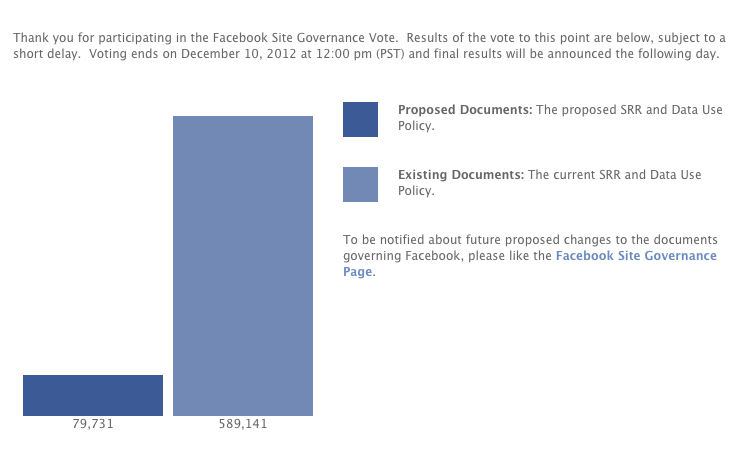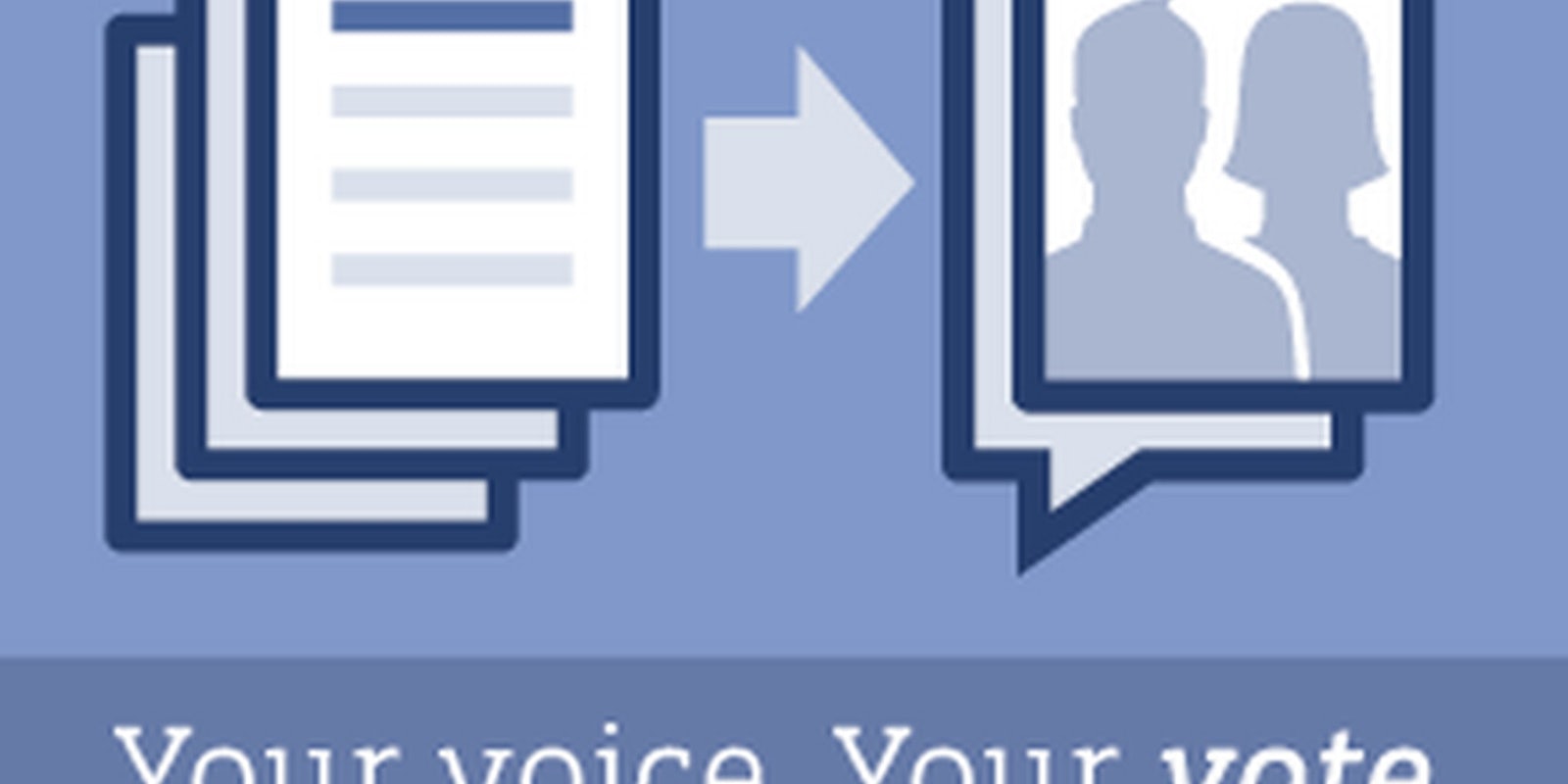The votes are in, and Facebook’s users have lost.
On Monday, Dec. 10, at 12pm PT, over one billion Facebook users gave up the right to vote on any future policy changes the company chooses to make.
Facebook announced in late November that it planned on modifying the language of its Data User Policy (DAP) and Statement of Rights and Responsibilities (SRR), the two company’s two governing documents.
The most notable revision eliminates the voting mechanism set in place to give its user base a say in any decision.
Under the soon-to-be old process, Facebook would publicly announce its intention to make any revisions. If enough people left a comment on the announcing post—the threshold was set at 7,000 comments—then the social network would put the proposed changes up to a vote. If 30 percent of all users voted, the result would be binding. If not, it would only be advisory.
That’s exactly what happened this time around. The November announcement garnered more than 20,000 comments, triggering the vote. Facebook opened the vote on Dec. 3, giving its users until Dec. 10—today—to choose between the two versions of the documents.
Facebook users turned out in record numbers, and they overwhelmingly voted to keep the old version of the documents. Unfortunately, the social network is not bound by the result of the vote because, only 668,872 people cast a ballot. For the voting to be official, 30 percent of the site’s users—around 300 million people—have to participate.
Instead, only about 0.0668 percent made their voices heard. That’s more than double the number of people who voted in June 2012 (342,632 votes, or .038 percent), but it was still nowhere near close the 300 million votes required.

So, what now?
For starters, Facebook will wait a day or two before making the official announcement.
Once the company confirms what we already know, Facebook will be free to make any amendments to its governing documents without much impediment. The company did announce that it will hold live webcasts with Erin Egan, its Chief Privacy Officer, where she’ll explain what any new changes. But users forfeited any direct agency when they failed to cast their ballots.
Going forward, Facebook will also have a lot more leeway in how it shares data with its affiliates, including companies it owns.
“Some of you asked us to clarify new language that we proposed,which explains that we share information with our family of companies,” wrote Elliot Schrage, Facebook’s Vice President of Communications, Public Policy, and Marketing.
“This provision is standard in the industry and promotes the efficient and effective use of the services Facebook and its affiliates provide,” he stated.
One such company is Instagram, which was acquired by Facebook in September 2012.
It’s unclear what the new policy changes mean, or how they will affect the more than one billion people who now have Facebook profiles. The outcome of the vote does mean that the publicly traded company will only be held accountable to its investors and regulators across the world.
Its users? They no longer have a say in the matter.
Photo via Facebook


